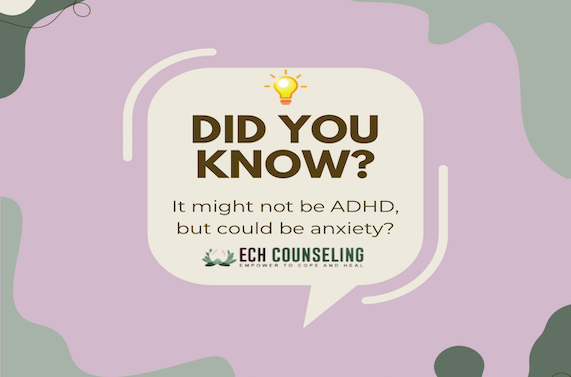Written by Jennifer Cox LCPC
Anxiety is a common mental health condition that can have a profound impact on a person’s executive functioning, the set of mental skills that help individuals plan, organize, and execute tasks effectively. When someone is dealing with anxiety, these cognitive functions can be significantly impaired, leading to difficulties in daily functioning and overall well-being.
One of the key ways in which anxiety impacts executive functioning is through the body’s natural stress response. When a person experiences anxiety, their body goes into “fight or flight” mode, releasing stress hormones like cortisol and adrenaline. This physiological response can impair executive functioning, making it difficult for individuals to think clearly, concentrate, and make decisions.
Anxiety can also affect attention and focus, as individuals may be preoccupied with worrying thoughts and find it hard to concentrate on tasks. This can lead to difficulties in completing tasks, following instructions, and staying organized.
In addition, anxiety can impact working memory, which is the ability to hold and manipulate information in the mind for short periods of time. This can make it challenging for individuals to remember important details, follow conversations, and make decisions based on past experiences.
Furthermore, anxiety can affect problem-solving skills, as individuals may have trouble thinking critically and coming up with effective solutions to problems – Individuals may struggle to weigh the pros and cons of different options and make choices that are in their best interest.
Impulse control (another executive function) can be impacted by anxiety. Individuals may engage in avoidance behaviors or compulsions as a way to cope with their anxious thoughts and feelings. This can further exacerbate their symptoms and lead to negative consequences for their overall well-being.
Overall, the impact of anxiety on executive functioning is significant and can have effects on an individual’s daily life. It is important for individuals struggling with anxiety to seek support to help them manage their symptoms and improve their cognitive functioning. By addressing the cognitive effects of anxiety, individuals can work towards better mental health and overall well-being.
If you’re struggling with your mental health, don’t hesitate to seek help from a professional –
Reaching out for support is an important step in prioritizing your well-being.
By working together, we can create a world where mental health is valued and
all individuals have access to the care and resources they deserve.
Reach out today at info@echcounseling.com or 815-363-0864


